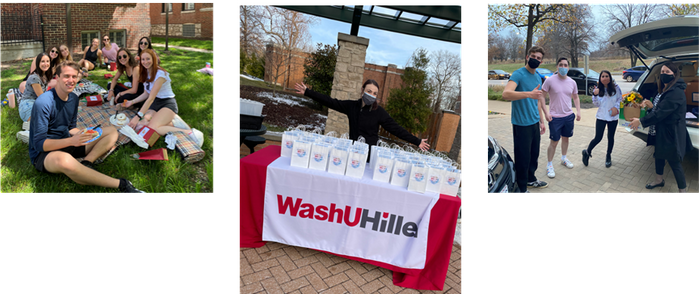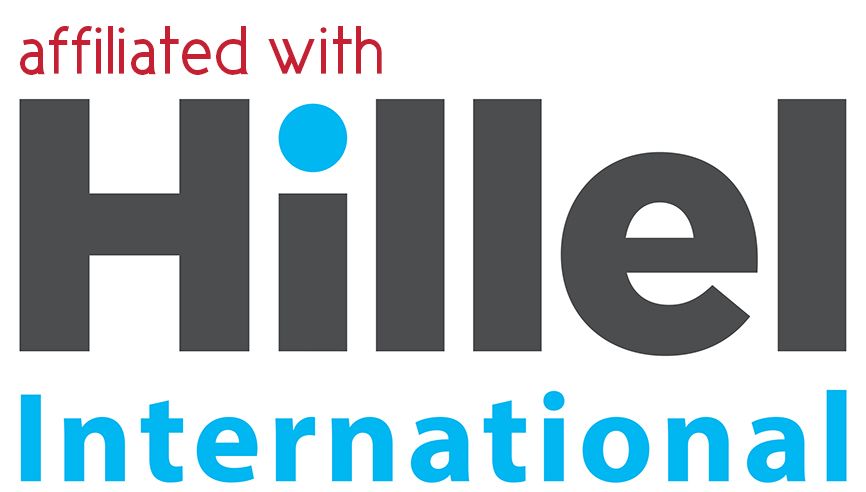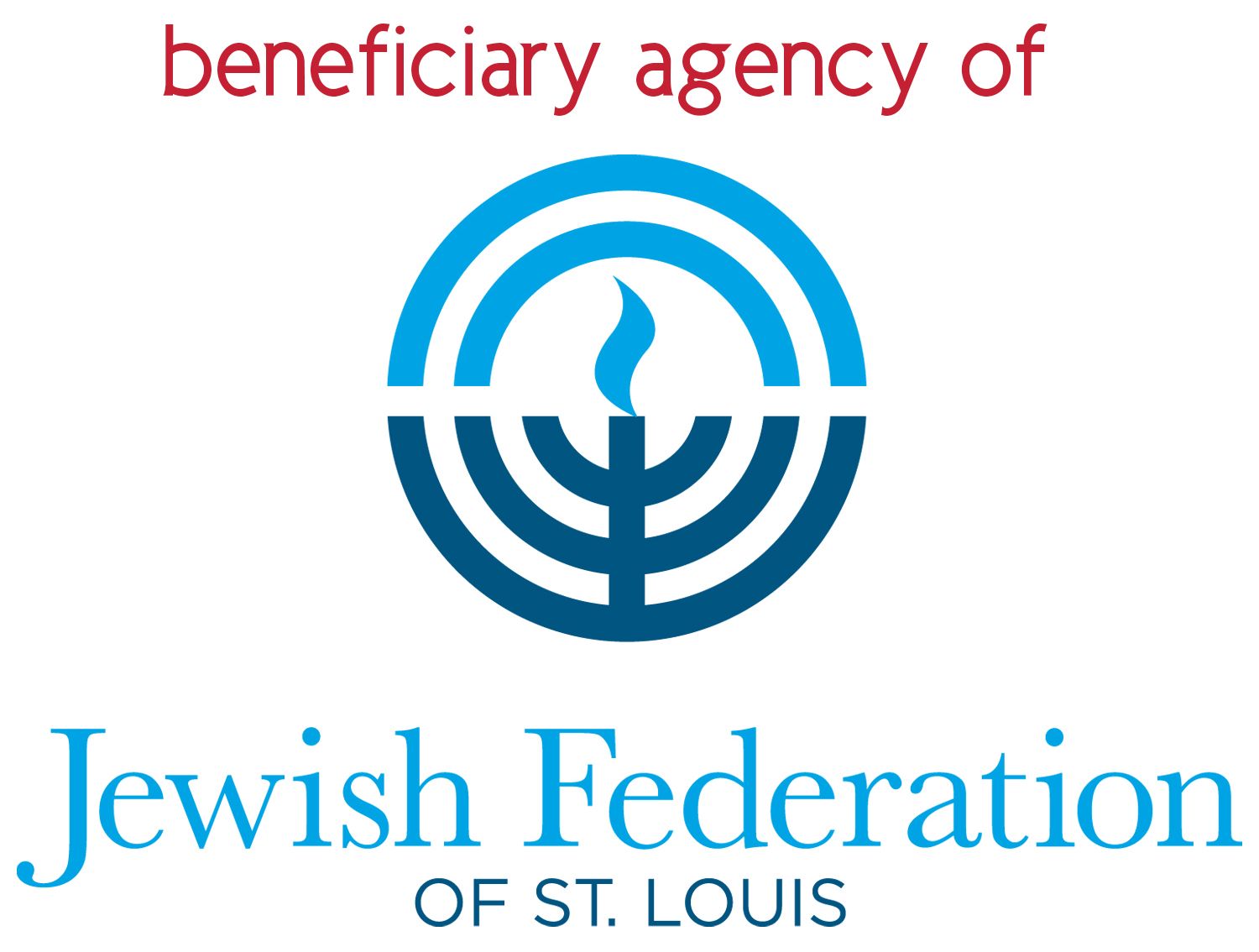
Persevering through the Pandemic
By Jacqueline Ulin Levey, Executive Director
Decades from now, historians, social scientists, and other experts will still be assessing the long-term impact of this pandemic period on society. Beyond the physical, mental, and emotional health implications, the pandemic altered every facet of daily life—restricting us from so much of what we had previously taken for granted and requiring us to adjust everything else—how we worked, learned, shopped, and interacted with the outside world.
As the head of a non-profit whose mission is to foster community among Jewish college students, I remember wondering during the early days of the COVID outbreak whether the pandemic would be the end of our organization. We had been ramping up for Passover on campus when news reports began to circulate that college students around the country were being sent home. The announcement soon followed that WashU students, who were on Spring Break, were not going to be allowed to return to campus. Our spring planning came to a crashing halt and we stopped the presses on our Passover appeal.
How could our Hillel continue to operate without students present? How would we raise funds without being able to pursue our mission? Did we have sufficient reserves? Would we be able to continue to pay our staff? How long would our facility be closed?
Like so many institutions and employers, the uncertainty of those early moments and our new reality was overwhelming; however, it was how we responded in that moment of crisis that forever changed the trajectory of our organization. Instead of allowing paralysis to set in, our team knew we had a finite number of days left to collaborate in-person, so we rolled up our sleeves and got to work. Before transitioning to working from home, we had already developed and began executing an action plan to carry us through the remaining 2.5 months of the semester. Portfolios were adjusted and responsibilities and tasks divvied up. We reached out to hundreds of students individually to check in and be a source of comfort, while also leveraging our social media to continue to foster connections and curate new digital content.
Our Board monitored our financial situation as we prepared varying sets of projections, participated in Hillel International’s successful inaugural Hillel Global Giving Week, and received our initial Small Business Administration Paycheck Protection Program loan.
It was with this same sense of determination and creativity that we transitioned into the 2020-21 academic year. With the guidance and counsel of our re-opening task force, WashU Hillel re-opened on September 4, 2020. We installed large tents and lighting over our patio and backyard and purchased substantial PPE, two dozen 6’ tables, outdoor heaters, and a massive inflatable movie screen. Through hundreds of programs—both in-person and virtual—we engaged over 1,000 WashU students during the academic year with zero COVID transmissions.
I’m proud that our commitment and ability to adapt, paired with exceptionally mild St. Louis weather in the fall semester, allowed us to continue to bring students together safely at Hillel for traditional offerings such as two seatings for Shabbat dinner weekly through November 27, 2020, with meals resuming March through May, plus services, movie nights, s’mores around the fire pits, Israeli dancing in our parking lot, service opportunities outdoors, as well as speakers, Jewish learning, crafting, yoga, and other programs over Zoom.
I’m even more proud of the unique ways in which we continued to bring Jewish life and community to students beyond the Hillel space. From Shabbat and holiday pop-ups around campus, to personal deliveries of curated Rosh Hashanah and Hanukkah boxes to hundreds of students at the South 40 and at individual apartments around campus, to delivering individually-packaged Shabbat and holiday meals to students at the Clocktower and Village.
Two programs that epitomize the innovative spirit that we’re continuing to infuse into our planning for the coming academic year include “Shabbat @ the Dorchester” and our “Russ & Daughters Bagel Pop-Up” off the Delmar Loop.
Born out of our flagship DIY program, which provides hundreds of students each year with all of the resources necessary to host small Jewish gatherings among friends, Hillel staff worked with Emma Herman, LA ’23, and Rebecca Daniel, LA ’22, to plan “Shabbat @ The Dorchester,” on November 20, 2020. Located at 665 S. Skinker Boulevard across from Forest Park, the Dorchester is an apartment high-rise that housed a significant number of Jewish students over the past year following WashU’s effort to de-densify the South 40 due to COVID. 17 Students residing at the Dorchester signed up to host Shabbat dinner for their pods for a total of 53 participants. Each guest ordered from a customized menu (“build your own salad” options, choice of entrée, choice of sides, and different desserts). Hillel staff packed each meal and delivered the individual dinners, challah, grape juice, a kiddush cup, candles, flowers, and a Shabbat blessing resource to the hosts that Friday afternoon.
On May 1, 2021, WashU Hillel hosted a Shabbat morning bagel and lox pop-up at the corner of Kingsbury and Trinity off the Delmar Loop. Featuring bagels flown in from Russ & Daughters in NYC, all of the fixins’ individually packed, Starbucks coffee, and our Hillel branded picnic blankets, the program was a great success. 160 students came through our corner pop-up, picking up a bite to-go to fuel exam studying or picnicking outside their apartment buildings and enjoying being in community with their peers.
All in all, WashU Hillel persevered through the pandemic, engaging 1,122 students during 2020-21 through:
- 1,041 Shabbat experiences;
- 607 service and civic engagement experiences;
- 2,014 Jewish holiday experiences (High Holidays, Hanukkah, Tu B’shvat, Purim, Passover); and
- Numerous other programs and opportunities.
We’ve learned so much over the past year and have worked hard to ensure that the successful ways we adapted to pursue our mission during the pandemic will be integrated into our robust offerings moving forward. We’re looking forward to a great year ahead!


